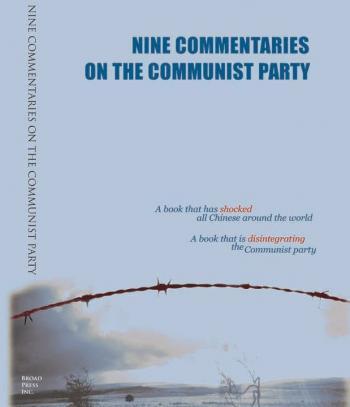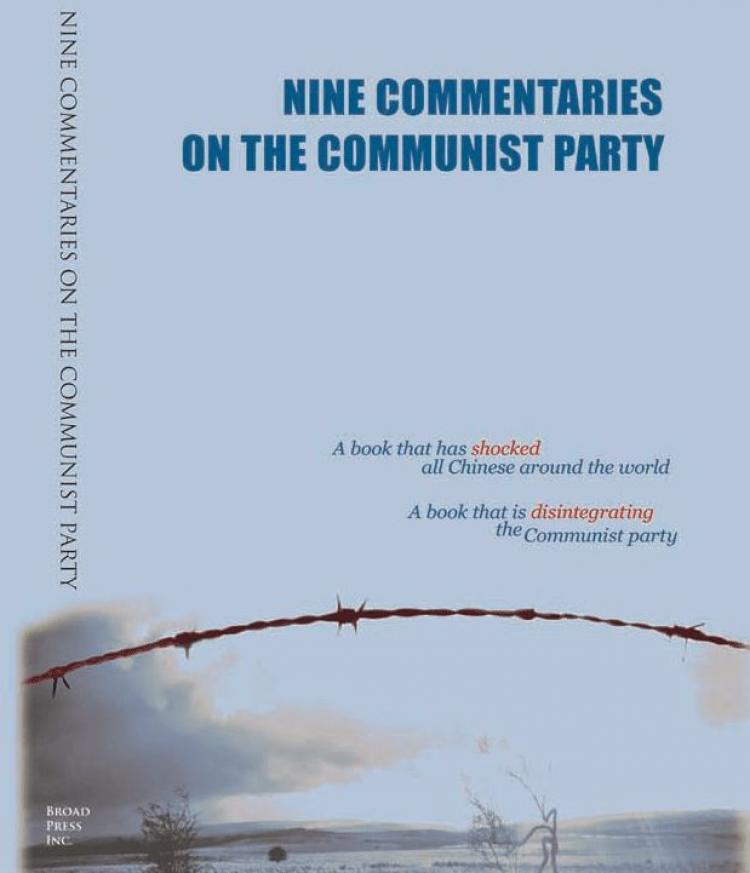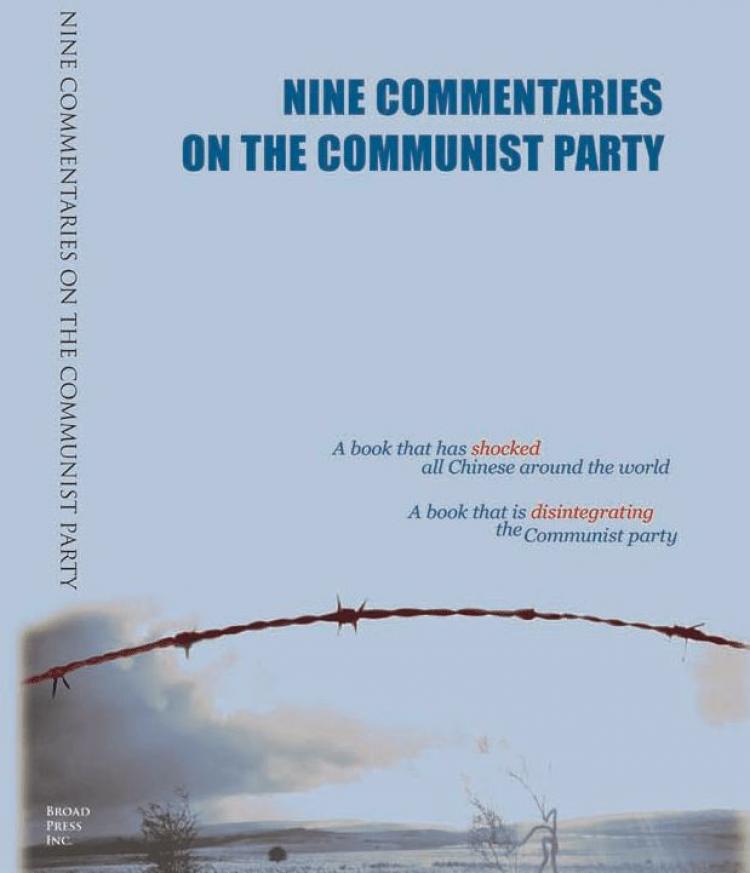The Epoch Times editorial series, the Nine Commentaries, may be just one of the many reflections of disenchantment that Chinese people have with the Chinese Communist Party (CCP), but its impact can no longer be ignored, said Dr. Sev Ozdwoski, Australian Human Rights commissioner from 2000 to 2005.
“The author remains anonymous, but the power of the ideas in this book is enormous,” he told a forum in Sydney held to celebrate the fifth anniversary of the The Epoch Times publication.
The Nine Commentaries, although banned in China, has inspired millions of Chinese people to resign from the Chinese Communist Party. Their resignations, which now number over 60 million and rising, are registered on a website established by The Epoch Times.
Dr. Ozdowski, who grew up under Soviet occupation and communist rule in Poland, compared the Nine Commentaries to George Orwell’s 1984, saying: “… after reading that book [1984], I couldn’t live in Poland anymore—I had to go.” The power of ideas in Nine Commentaries and the “written mode of expressions” were having a similar impact in China, he said.
Dr. Ozdowski said he was surprised to learn from reading the book that a foreign power, the Soviet Communist Party, had actually established and funded the Communist Party in China.
“So one could say that the Chinese Communist Party was born of high treason of Chinese people,” he said.
In reading each of the Commentaries, he noted that much of the behavior of the present rulers of China had been transplanted from Stalinist Russia, both countries losing millions of people to human-induced famine, mass terror and violence.
“I read in the book there was this 95 to 5 formula of class assignments. So 95 percent of the population was assigned to various classes, which could be re-educated and improved, and 5 percent were labeled as class enemies for destruction.
“It follows very closely what was happening in the Soviet Union. Stalin demanded from city officials lists, which would include up to 10 persons per population for the purpose of killing them,” he said.
Dr. Ozdowski also noted similar attacks on moral codes of society. “They [CCP] attacked Confucians, they attacked Buddhists, they attacked Taoists. My work in human rights confirms very much what the book is saying–Chinese cannot elect their own government, there is no freedom of speech, censorship dominates every aspect of their life.”
The Nine Commentaries, he said “simply expresses the idea that ‘the time has come’ in a unique Chinese way”.
Chen Yonglin, a former Chinese diplomat who defected to Australia from the Sydney consulate in 2005, also spoke at the forum.
Speaking in Mandarin for a live link into China, Mr Chen said many Chinese people did not know the true history of the CCP in China or the suffering of the Chinese people, but after reading the Nine Commentaries, they realized things were very different from what they had been brought up to believe.
Similarly, those intellectuals and democracy activists who had hoped they could work with and transform the CCP from within saw clearly that there was no hope for democracy while the Party was there.
“Why has the CCP not brought democracy [to China]?” he asked the audience. “I say it is because they are anti-human and for the past 60 years what the CCP has perpetrated on these people, we could never forgive and never forget.”
Mr. Chen, who had spied on Falun Gong practitioners and others as part of his role in the Sydney consulate, said the Nine Commentaries had so shocked the Chinese communist leadership that they had searched the mainland and overseas for the writer.
“They actually put a few people in jail in China because they thought they were the writers,” he said.
“Even the lawyer, Gao Zhisheng, they thought he was speaking about the Nine Commentaries everywhere and so they put Gao in jail and sentenced him for three years,” Chen said.
Gao Zhisheng, a human rights lawyer considered to be the Nelson Mandela of China, is still being held, with his exact whereabouts unknown to this day.
Associate Professor in Chinese Lawyer Tie Ming Yuan also spoke in Mandarin, telling listeners that the Nine Commentaries played an important role in educating Chinese people about the methods the Chinese Communist Party had used to come to power and how they continued to stay there.
“Before, we never thought that the government did not have the right to rule in China, but after this book has been published, we understand it came to power not by election and not by law,” he said.
Chinese leaders are not interested in the Chinese people, but only in maintaining their own existence, he said. For this reason, he said, Chinese people would no longer put their faith in the Party.
Power of Nine Commentaries ‘enormous’: Human Rights Commissioner
The Nine Commentaries, although banned in China, has inspired millions of Chinese people to resign from the Chinese Communist Party.

The Epoch Times editorial series, the Nine Commentaries
|Updated:





